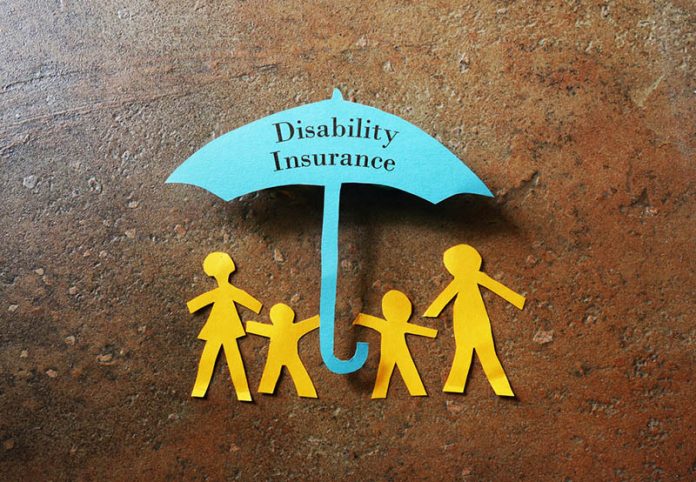Navigating the complex world of disability insurance can be overwhelming and disheartening, especially when a claim is denied. Disability insurance claim denial is a situation many policyholders fear, as it can lead to financial strain and added stress in an already challenging time. Understanding the reasons for denial and the process for addressing them can help alleviate some of this anxiety.
One of the primary reasons for disability claim denial is incomplete or insufficient documentation. Insurance providers must verify the claimant’s eligibility for benefits based on policy definitions and requirements. Thorough, accurate, and up-to-date medical documentation is crucial for approval. Therefore, familiarizing oneself with the necessary forms and working closely with medical professionals to provide adequate evidence of disability is essential.
Another contributing factor to claim denial is the insurer’s interpretation of the policy’s terms and conditions. These terms often involve specific definitions of disability, waiting periods, and exclusions. A solid understanding of the policy’s language and the provider’s expectations can help claimants fulfill all requirements and present a strong case for their disability claim.
Understanding Disability Insurance Claim Denial
Disability insurance claim denials can occur for various reasons. This section provides an overview of some common explanations for why an insurance company may not approve a policyholder’s claim.
One possible reason for denial is the policyholder’s failure to demonstrate that their condition meets the policy’s definition of disability. Insurance companies may have varying definitions and criteria that need to be met, such as:
- The inability to perform the duties of one’s occupation
- A medical condition that prevents substantial gainful activity
- A severe injury or illness that requires ongoing care
Another factor that can result in a denied claim is insufficient medical documentation. Claimants must provide ample evidence to support their disability, which may include:
- Medical records detailing the condition
- Statements from treating physicians
- Diagnostic test results
In addition to sufficient medical documentation, insurance companies may require proof that the claimant is undergoing appropriate treatment. This means policyholders must:
- Follow their doctor’s recommendations
- Attend regular follow-up appointments
- Show effort to improve their condition through therapy or rehabilitation
Policyholders should also be aware of any exclusions or limitations within their policy. Some common examples of policy restrictions may include:
- Pre-existing condition exclusions
- Self-inflicted injuries
- Disability duration time limits
Lastly, failure to meet deadlines and comply with procedural requirements can result in a disability insurance claim denial. It is essential for claimants to:
- Submit their claims within the enforced time frame
- Provide any requested information or documentation
- Notify their insurance company of any changes in their condition or treatment
Understanding the reasons behind disability insurance claim denial can help policyholders take the necessary steps to fulfill the requirements for a successful claim adequately.
Reasons for Denial
Lack of Medical Evidence
One common reason for disability insurance claim denial is a lack of sufficient medical evidence. Insurers require documented proof of the insured’s disability, such as medical records, diagnostic tests, and doctors’ assessments. The claim may be denied if the provided evidence is not convincing or does not indicate the person’s limitations or impairment. To avoid this issue, claimants must work closely with their healthcare providers to gather comprehensive and compelling medical evidence.
Pre-Existing Condition Exclusion
Another possible reason for denial is a pre-existing condition exclusion. Some disability insurance policies contain clauses that exclude coverage for conditions present before the policy was issued. If the insurer determines that a pre-existing condition caused the disability, they may deny the claim. In such cases, reviewing the policy’s terms and conditions and consulting with a legal expert to understand the rights and options is essential.
Non-Disclosure of Information
A disability claim may also be denied if the insurer believes the claimant has failed to disclose important information. This can include medical history, occupation, and lifestyle habits. Insurers may argue that the non-disclosure was deliberate or constitutes a misrepresentation, which could void the policy. To prevent denial on these grounds, the insured should provide all relevant and accurate information when applying for disability coverage.
Policy Exclusions
Lastly, policy exclusions can lead to claim denial. Disability insurance policies often have specific exclusions for certain conditions, types of injuries, or situations that do not qualify for benefits. Some common exclusions include self-inflicted injuries, injuries from criminal activity, or disabilities caused by drug or alcohol abuse. The insured must familiarize themselves with their policy’s exclusions and consult a legal professional.
Appealing a Denial
Review the Denial Letter
It is essential to read the denial letter received from the insurance provider carefully. The letter will typically explain the reasons for the denial and any specific policy provisions that support their decision. Take note of any deadlines or specific requirements mentioned in the letter, as these can be crucial when preparing an appeal.
Gather Supporting Documents
Gather relevant documents and evidence to support your claim to build a strong appeal. This may include:
- Medical records that verify your disability
- Statements from physicians on your condition and how it affects your ability to work
- Any additional tests or evaluations recommended by your healthcare provider
- Evidence of your attempts to return to work or perform other tasks, if applicable
- Any other relevant information that supports your claim
Submit the Appeal
Once all necessary documents have been gathered, submit the appeal to the insurance company, including a letter that addresses each point mentioned in the denial letter. It is important to maintain a professional and organized approach in your appeal. Consider the following when submitting your appeal:
- Ensure all documents are compiled and organized in a clear, concise manner
- Review the appeal thoroughly to confirm you have addressed all points mentioned in the denial letter
- Submit your appeal within the designated timeframe, as mentioned in the denial letter
Following these steps, you can create a well-structured appeal that addresses the issues raised in the denial letter and provides substantial evidence to support your disability insurance claim.
Legal Representation
Benefits of Hiring a Lawyer
Hiring a lawyer for a disability insurance claim denial can provide numerous advantages. A legal professional with expertise in this area can help claimants navigate the complex process of appealing the decision. They possess extensive knowledge of the applicable laws and regulations, ensuring that a claimant’s rights are protected throughout the process.
A lawyer can assist in gathering valuable evidence and documentation to support the case. This may include medical records, financial statements, and witness testimonies. Additionally, experienced attorneys can identify any procedural errors made by the insurance company that could bolster the claimant’s case.
Legal representation allows claimants to focus on their health and recovery while the attorney handles the intricacies of the appeal process. Moreover, a knowledgeable legal professional can facilitate negotiation and communication with the insurance company on the claimant’s behalf. This helps create a strong and thorough appeal, increasing the chances of a favorable outcome.
Hiring a lawyer also levels the playing field against the insurance company’s legal team. It ensures that the claimant receives fair representation and guidance throughout the process. In some cases, this may result in a quicker resolution, as insurance companies may be more inclined to settle when faced with legal representation.
In conclusion, seeking legal representation is often a wise decision for individuals faced with disability insurance claim denial. This ensures the claimant can access expert guidance and support throughout the appeal process.
Preventing Future Denials
Accurate and Complete Information
It is essential for individuals applying for disability insurance to provide accurate and complete information on their applications. Errors or omissions in the application can often lead to a claim denial. To avoid this, applicants should carefully review their applications and ensure all necessary documentation is included. If necessary, seeking professional assistance from an attorney, financial planner, or another expert in disability insurance can be beneficial.
Regular Medical Check-Ups
Regular medical check-ups are another crucial aspect of preventing disability insurance claim denials. Maintaining a consistent and well-documented medical history can help demonstrate the legitimacy of a disability claim. Individuals should attend regular medical appointments, follow their healthcare provider’s recommendations, and keep detailed records of their treatments and medical conditions. Also, maintaining a strong relationship with one’s healthcare provider will ensure that they have a reliable source for medical documentation and support in case of a disability insurance claim.
- Review applications for accuracy and completeness.
- Seek professional assistance if necessary
- Attend regular medical appointments
- Keep detailed records of treatments and conditions
- Maintain a strong relationship with healthcare providers




































